Programme
Patient Solutions will move beyond a traditional conference with an exciting programme running across multiple event stages, featuring insightful content and immersive activities. The events open floor plan and short content sessions interspersed with multiple networking breaks will give attendees maximum opportunity to build connections and be part of Irish healthcare transformation.

PATIENT CENTRE STAGE
The centre stage will look at the future of patient-centred healthcare in Ireland, focussing on big picture challenges and strategic discussions that resonate with healthcare leaders, policymakers, patients and industry professionals.

DIGITAL SOLUTIONS STAGE
Join fellow delegates to explore cutting edge technologies that improve patient diagnosis, treatment, monitoring and outcomes. Hear the latest across AI, Virtual Wards, Electronic Health Records, Telemedicine and the future with our PatientTech start up competition.
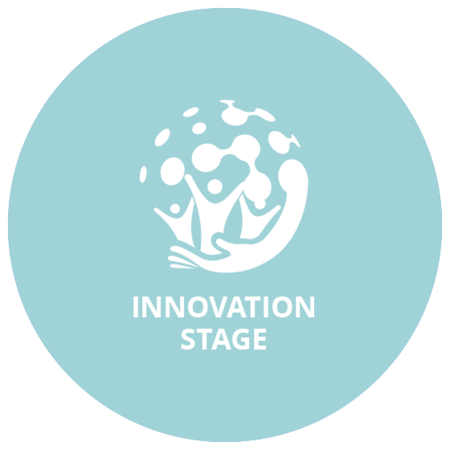
INNOVATION STAGE
Discover the next generation of patient-focused innovation – both digital and non-digital, on the Innovation Stage. This dynamic platform brings together early-stage startups, entrepreneurs, and healthcare pioneers showcasing groundbreaking solutions that enhance patient care, accessibility, and empowerment.
Want to be part of the inner circle?
Sign up here for the latest programme and speaker updates.
9:10 - 9:15

Editors’ Welcome Remarks

Terence Cosgrave , Editor, Irish Medical Times
9:15 - 9:45

Keynote 1: Defining the future of patient-centred care in Ireland – priorities, progress and next steps
This opening keynote explores the future of patient-centred care in Ireland and addresses the ongoing and upcoming reforms in the healthcare system to enhance accessibility, efficiency and quality. Understand the vision for transformation, digital adoption and integrated care and importantly the role of the patient in creating change. Can systemic challenges be overcome? What are government funding priorities? And where are regulatory changes required?

Robert Watt , Secretary General, Department of Health
9:45 - 10:30

Panel 2: Aligning healthcare with patient needs – the power of collaboration and co-creation
9:45 - 10:30
Explore the transformative impact of patient collaboration across the healthcare ecosystem – including industry, regulators, healthcare providers, and advocacy groups. This session will highlight how co-creation with patients leads to better long-term, viable healthcare solutions that truly meet patient needs. Experts will discuss best practices for engaging patients as equal partners, ensuring their insights shape innovations, policies, and care delivery. This session will also cover the evolution of the HSE’s patient panels for patient and public representatives involved in digital health governance structures.
Chair:

Martin McCormack , Chief Executive Officer, College of Anaesthesiologists of Ireland
Panellists:

Gary Boyle , Patient Advocate & Vice President – Ireland, Parkinson's Europe

Bala Krishnan , Chief Information Officer, HIQA

Susan Treacy , Chief Executive Officer, HealthTech Ireland
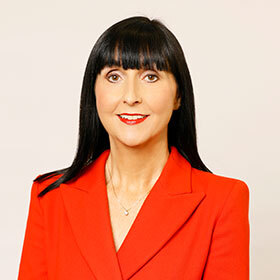
Lisa Wallace , Business Unit Director and Head of Business Transformation, Johnson & Johnson Innovative Medicine

Keynote Panel 1: Revolutionising patient care: AI, Digital Health & Ireland’s Digital for Care 2030 vision
9:45 - 10:30
Digital health and AI are rapidly transforming patient care - enabling more personalised, efficient, and accessible services. From AI-driven diagnostics to predictive analytics and telehealth, these technologies are reshaping how care is delivered and experienced. Yet challenges around regulation, data privacy, and integration into existing workflows remain.
Aligning with Digital for Care: A Digital Health Framework for Ireland 2024–2030, this session will explore how it supports the ethical and effective use of digital tools. Through real-world case studies, we’ll also highlight AI’s growing impact on clinical decision-making, early disease detection, and patient management - demonstrating its role in shaping a more connected, patient-centred health system.
Chair:

Professor Ronan Killeen , Consultant Radiologist, St Vincent’s University Hospital & Full Clinical Professor of Radiology, School of Medicine, University College Dublin
Panellists:

Professor Richard Costello , Consultant Respiratory Physician, Beaumont Hospital Dublin & Professor of Medicine, Royal College of Surgeons Ireland

Professor Colin Doherty , Consultant Neurologist & Director of the Epilepsy Service, St James’s Hospital & Ellen Mayston Bates Professor of Epileptology & Head of the School of Medicine, Trinity College Dublin

Karen Kelly , Advanced Nurse Practitioner, Heart Failure & CEO and Founder, HeartPath

Damien McCallion , Chief Technology and Transformation Officer & Deputy CEO, HSE

Damian Pearce , Chief Commercial Officer, Stalis
10:30 - 11:00
Networking Break
11:00 - 11:45
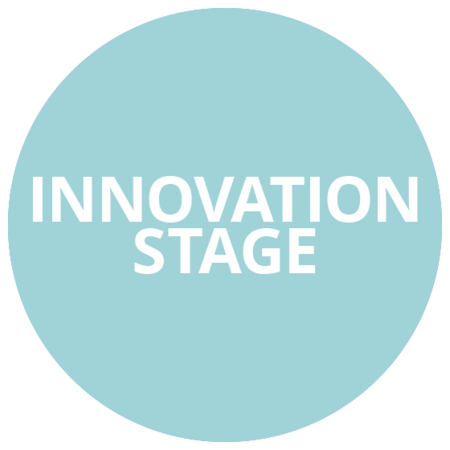
Innovation Labs – come and be inspired!
Our Innovation Labs offer a space to explore diverse solutions that address real-world patient needs beyond digital health technology.
Each lab will showcase four compelling presentations, carefully selected from a Call for Innovation , highlighting practical, implementable solutions that drive meaningful improvements in patient care. Solutions can be medications, better service models or process improvements .
Chair:

Dr Natalie Cole , Head of Innovation, Tallaght University Hospital
11:00 – 11:10
Supporting Ageing in Place - Policy, Integration, and Nursing Home Care
This session will present key insights from Nursing Homes Ireland’s Supporting Ageing in Place Insights Paper, which synthesises discussions from the February 2025 national roundtable on nursing home care. The presentation will highlight how resident-focused approaches and cross-sector collaboration can shape a more sustainable, rights-based system of care.

Kevin Deegan
, Policy & Communications Lead,
Nursing Homes Ireland
11:10-11:20
Occupational Therapy Led Reablement as an Alternative Discharge Pathway
This project, an innovative collaboration between UHW and the local Home Support office addresses delayed discharges and limited subacute care by delivering a home-based rehabilitation service led by Occupational Therapy and delivered by HCAs retrained in Reablement. The model ensures patients receive the right care, in the right place at the right time and critically leverages existing staff resources—making it both scalable and cost-effective.

Megan Walsh , Senior Occupational Therapist, University Hospital Waterford
11:20-11:30
GLA:D® Ireland Programme for Hip and Knee Osteoarthritis
This session will describe the implementation of a bottom-up non-profit initiative, GLA:D® Ireland, to improve access to evidence-based care for people with osteoarthritis. Consisting of supervised group exercise and education delivered by trained physiotherapists, the improvements in outcomes for patients across all four provinces in Ireland will be presented.

Dr Clodagh Toomey
, Associate Professor,
University of Limerick
11:30 - 11:40 Group Q&A

11:45 – 11:55
ADMiRE ADHD Navigator: An evidence-based solution that transforms ADHD assessment and treatment for young people in Ireland
This session explores how ADMiRE ADHD Navigator, an innovative digital platform, is transforming ADHD assessment and treatment for young people in Ireland. It tackles systemic challenges like long delays and fragmented communication by uniting families, schools, and clinicians on a single, user-friendly interface. Key insights and lessons from the solution's deployment will also be presented.
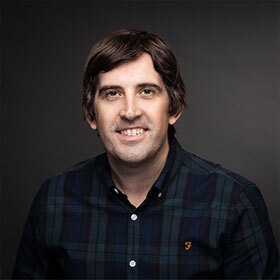
Thomas Coleman
, CEO & Co-Founder,
Zendra Health
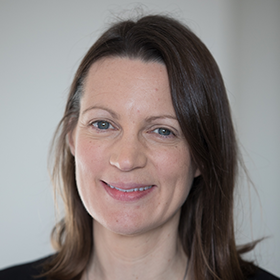
Jane McGrath
, Consultant Child and Adolescent Psychiatrist, HSE and Associate Professor of Child Psychiatry,
Trinity College Dublin
11:55 – 12:05
Before My Visit: A Conversational AI Tool for Patients to Document and Query their Medical Data
Before My Visit is a very simple to use mobile app that patients can use to compile, maintain and query their entire medical history using a simple chat interface, completely replacing the need for form and/or paper-based input. Complex data handling and transformation happens behind the scenes while the user interacts with an interface designed to look and feel more like a WhatsApp chat than a medical tracker.
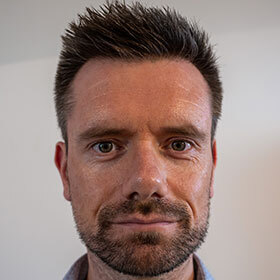
David O’Regan
, Founder,
ReganByte
12:05 – 12:15
Evidence-Based Healthcare Transformation: Supported Self-Management of COPD
This session explores how digital health technology can reduce the burden of chronic conditions, focusing on COPD. It reviews evidence for digitally-supported self-management in preventing hospitalisations and GP visits while improving symptoms. Real-world implementation learnings will offer practical insights for policymakers and healthcare professionals planning integrated care delivery.

Eamonn Costello
, CEO & Co-Founder,
patientMpower
12:15 - 12:25 Group Q&A
11:00 - 12:40

Panel 3: Transforming healthcare with personalised medicine: a move away from ‘one size fits all’
11:00 - 11:45
This session will discuss how personalised medicine represents an exciting opportunity to improve the future of individualised healthcare, empowering patients and holding much promise for disease treatment and prevention. But what are the barriers to adoption? Understand how to manage cost and accessibility issues, what the collection of data means for personal privacy and ethics and how healthcare systems will need to update regulations to incorporate personalised medicine more effectively.
Chair:

Professor Richard Greene , Chief Clinical Information Officer, HSE
Panellists:

Dr Dearbhaile Collins , Clinical Director, Cancer Services & Consultant Medical Oncologist, Cork University Hospital

Professor Maeve Lowery , Professor of Translational Cancer Medicine, Trinity College Dublin & Consultant Medical Oncologist, St James's Hospital

Dr Garrett McGovern , GP Specialising in Addiction Medicine & Medical Director, Founder, Priority Medical Clinic

Dr Donal O’Connor , Clinical Manager Medical Devices, HPRA

Panel 4: Closing the gap – tackling healthcare accessibility and inequalities for all
11:45 - 12:30
Healthcare access and equity remain critical challenges, with disparities driven by geography, socioeconomic status, workforce shortages, and systemic inefficiencies. This session will explore how to create a more inclusive healthcare system that ensures timely, high-quality care for all patients – regardless of background or location. Panellists will highlight successful initiatives that have improved healthcare access and equity, providing useful tools, strategies and policy recommendations that can help drive change. Special consideration will be given to mental health provisions, vulnerable populations and specialised care for complex conditions.
Chair:

John Farrelly , Chief Executive, Mental Health Commission
Panellists

Jacqueline Daly , Director, East Galway Midlands cancer support & United Cancer Advocates Network (UCAN)

Caoimhe Gleeson , General Manager, National Office for Human Rights and Equality Policy, HSE

Dr Rosa McNamara , Consultant, St Vincent's University Hospital & Clinical Lead, National Clinical Programme for Emergency Medicine, HSE

Lora Ruth Wogu , Founder & Managing Coordinator, Migrant Health Alliance Ireland / Founder & CEO, Sickle Cell and Thalassaemia Ireland

Book Launch: Stay Left, Shift Left-10X – The New Proactive Digital Paradigm for Health Transformation
12:30 – 12:40
This is the Irish book launch of Professor Curley’s new book on digital health systems transformation. Stay Left, Shift Left-10X (SL2-10X) proposes a new kind of digitally powered proactive health system where health revolves around the person, their home and their mobile phone and not around hospitals. In this new kind of health and wellness system, people are active participants, co-producing their own health with clinicians.
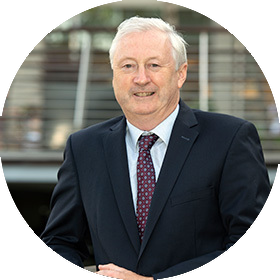
Professor Martin Curley , Professor of Innovation, Maynooth University

Case study: Real world experience of deploying AI in an Irish radiology department
11:00 - 11:25
This session discusses how AI can enhance healthcare diagnostics, boosting accuracy, efficiency and patient outcomes. It explores topics such as faster triage, improved detection of subtle findings and reduced diagnostic delays, while addressing challenges including integration with hospital infrastructure, clinical workflows and regulatory requirements. A real world case study from an Irish hospital illustrates the practical impact of AI driven diagnostics, offering valuable lessons for healthcare professionals, technologists and policymakers.
Chair:

Professor Martin Curley , Professor of Innovation, Maynooth University
Speaker:
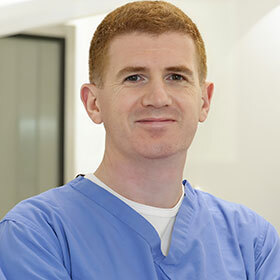
Professor Peter MacMahon , Consultant Radiologist, Mater Misericordiae University Hospital & Mater Private Hospital & Clinical Professor, School of Medicine, University College Dublin

Case study: Digitising the lab – transforming diagnostics at one of Ireland’s busiest hospitals
11:30 - 11:55
St. James’s Hospital’s laboratory processes over 12 million patient results annually across 15 areas. By moving to cloud platforms and adopting electronic workflows, it has automated demand, speeding diagnosis and treatment. The lab is now preparing to expand molecular genetic services, deliver Ireland’s largest biochemistry service, and introduce AI-driven digital pathology – replacing microscopes with software that flags urgent cancer cases. These innovations promise faster diagnoses, prioritised reviews, and improved efficiency, accuracy, and patient care.
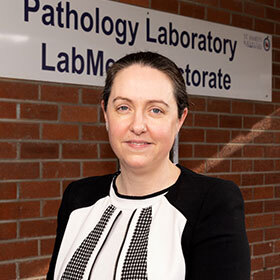
Fiona Kearney , Laboratory Manager, LabMed Directorate, St James’s Hospital

Case study: Robotic surgery in rectal cancer - a catalyst for culture change
12:00 - 12:25
This session explores how robotic surgery is transforming delivery of surgery, from surgical precision, optimising patient outcomes and standardising surgical training. Experts will explore the concept of robotic surgery technology, how such technology has shifted outcome measurement towards a patient-centred approach and highlighting real-world case studies particularly in rectal cancer surgery to highlight these advances.*
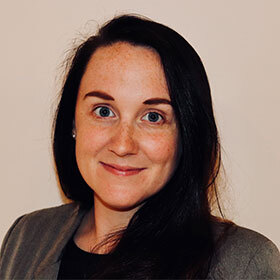
Professor Christina Fleming, Consultant Robotic Colorectal Surgeon, HSE MidWest & School of Medicine, University of Limerick
*This session contains graphic surgical imagery related to robotic procedures. Please view with discretion and respect for patient privacy. Recording or sharing content is not permitted
12:40 - 13:45
Networking Lunch & Patient Village
The Patient Village is a dedicated space within the exhibition designed to put patient voices at the heart of healthcare innovation. Hear firsthand lived experiences from patients, carers and their advocates and their hopes for the future of Irish healthcare.
13:45 - 16:00

Panel 5: Unheard voices – lived experiences driving patient-centred solutions
13:45 - 14:30
Too often, healthcare solutions are designed without fully hearing from the people they are intended to serve. This panel puts patients and caregivers at the centre of the conversation, creating space for lived experiences to highlight unseen challenges and overlooked needs in the healthcare system. Through deeply personal narratives, panellists will share what truly matters in their care journeys – from navigating fragmented services and being excluded from decision-making, to managing rare conditions and chronic illness in everyday life. We’ll explore how patient-led insights can reshape priorities, reveal systemic blind spots, and inspire more compassionate, effective solutions.
Chair:
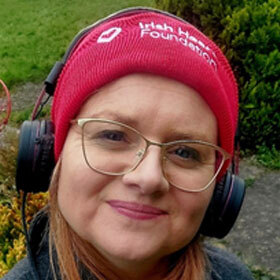
Pauline O’Shea , Heart Patient, PPI rep, and Advocacy Campaign Manager, Irish Heart Foundation
Panellists:

Dr Scheryll Alken , Consultant Medical Oncologist, Adolescent & Young Adult Cancer, Children's Health Ireland/St James's Hospital
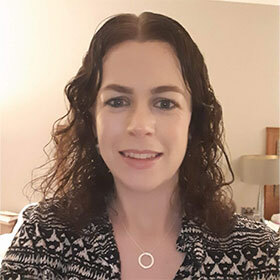
Fiona Bardon , Patient Champion, Irish Heart Foundation
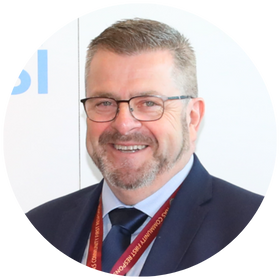
Joe Ryan , National Director, Public Involvement, Culture and Risk Management, HSE

Martin Sweeney , Prostate Cancer Patient Advocate, Cancer Trials Ireland ; Co-Founder and Secretary, United Cancer Advocates Network (UCAN)

Dr Neasa Starr , Consultant Cardiologist, University Hospital Limerick

Panel 6: Beyond the hospital – delivering integrated, patient-centred care at home
14:30 - 15:15
As healthcare systems face growing pressure, the future of care must be patient-centred, technology-enabled, and community-driven. This session will explore how integrated, community-based care can reduce hospital dependency, improve patient outcomes, and boost system efficiency. Attendees will gain insights into the changes needed to make this vision a reality – from strengthening primary care networks and empowering GPs to prevent hospital admissions, to leveraging technology like electronic health records, remote monitoring, and AI. The panel will discuss examples of how to enhance community care and deliver care where it matters most: in a place called “home”.
Chair:

Maeve McGrath , Head of Healthcare Innovation, Roche
Panellists

Dr John Cuddihy , National Director, Public Health, HSE

Professor Paul Fearon , Medical Director, St Patrick’s Mental Health Services

Professor Mary Horgan , Chief Medical Officer, Department of Health & Professor of Infectious Diseases, University College Dublin & Mater Misericordiae University Hospital

Dr Sarah Mello , Consultant Physician in General & Geriatric Medicine, University Hospital Waterford

Amy Nolan , Director of Clinical Affairs, Irish Cancer Society & Board Member – Faculty of Nursing & Midwifery, Royal College of Surgeons Ireland

Panel 7: Transitioning successful pilot schemes into long-term, funded solutions
15:15 - 16:00
Innovative pilot programs such as virtual wards, home-based chemotherapy, and health passports have demonstrated their potential to improve patient outcomes, enhance efficiency, and reduce healthcare system strain. However, the transition from successful pilot schemes to nationally funded and integrated healthcare solutions remains a significant challenge. This panel will explore the barriers to scaling innovation, the role of funding and policy continuity, and practical strategies to ensure these initiatives move from short-term success to long-term impact. How can we ensure success travels the nation.
Chair:
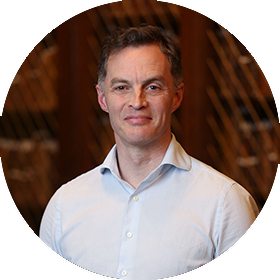
Professor Trevor Duffy , Director of Healthcare Leadership, Royal College of Physicians of Ireland & Consultant Rheumatologist, Connolly Hospital Blanchardstown and the Hermitage Medical Clinic
Panellists:

Caitriona Heffernan , National Clinical Innovation Lead, HSE Spark Innovation Programme
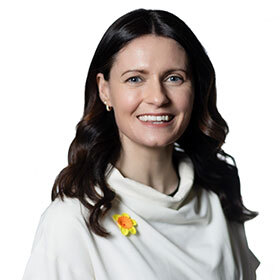
Edel Shovlin , Chief Operating Officer, Irish Cancer Society

Dr Caroline Whelan , Group CEO, Blackrock Health

Case study: transforming patient care with virtual wards, personalised medicine and remote diagnostics
13:45 - 14:10
Explore how virtual wards are revolutionising healthcare by delivering personalised, home-based care through remote monitoring and diagnostics, allowing early interventions. This session will showcase a real-world case study, highlighting how virtual wards enhance patient outcomes, ease hospital pressures, and improve access to specialist care—while integrating tailored treatment pathways and digital innovation. Key benefits, challenges, patients' experience and lessons learned will also be shared.
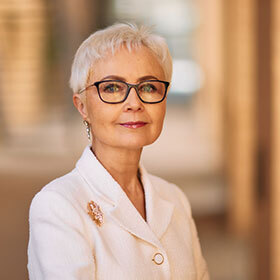
Dr Olga Mikulich, Clinical Lead and Respiratory Consultant, Letterkenny University Hospital

Panel 2: Advancing Electronic Health Records in Ireland to deliver a truly interconnected healthcare system
14:15 - 15:00
Understand the current state of Electronic Health Records (EHRs), highlighting progress made, including the introduction of the Individual Health Identifier (IHI) and eHealth Ireland initiatives. Experts will share examples of hospital and GP-level systems and their impact on care delivery. The session will also examine the barriers to full implementation, such as system interoperability and infrastructure limitations, while discussing the critical steps needed to fully embrace EHRs for a more integrated and efficient healthcare system.
Chair:

Professor Martin Curley , Professor of Innovation, Maynooth University
Panellists:

Dr Mike O’Callaghan , GP & Research Hub Clinical Lead, Irish College of General Practitioners

Kieran Hughes , CEO, Stalis

Miriam Roche , EHR Programme Lead, Mater Misericordiae University Hospital
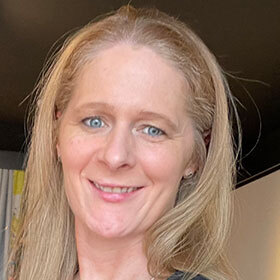
Miriam Staunton , Co-Founder & Chair, United Cancer Advocates Network (UCAN)
16:00 - 16:05

Editors’ Closing Remarks

Caroline McDermott , Editor, MIMS Ireland
